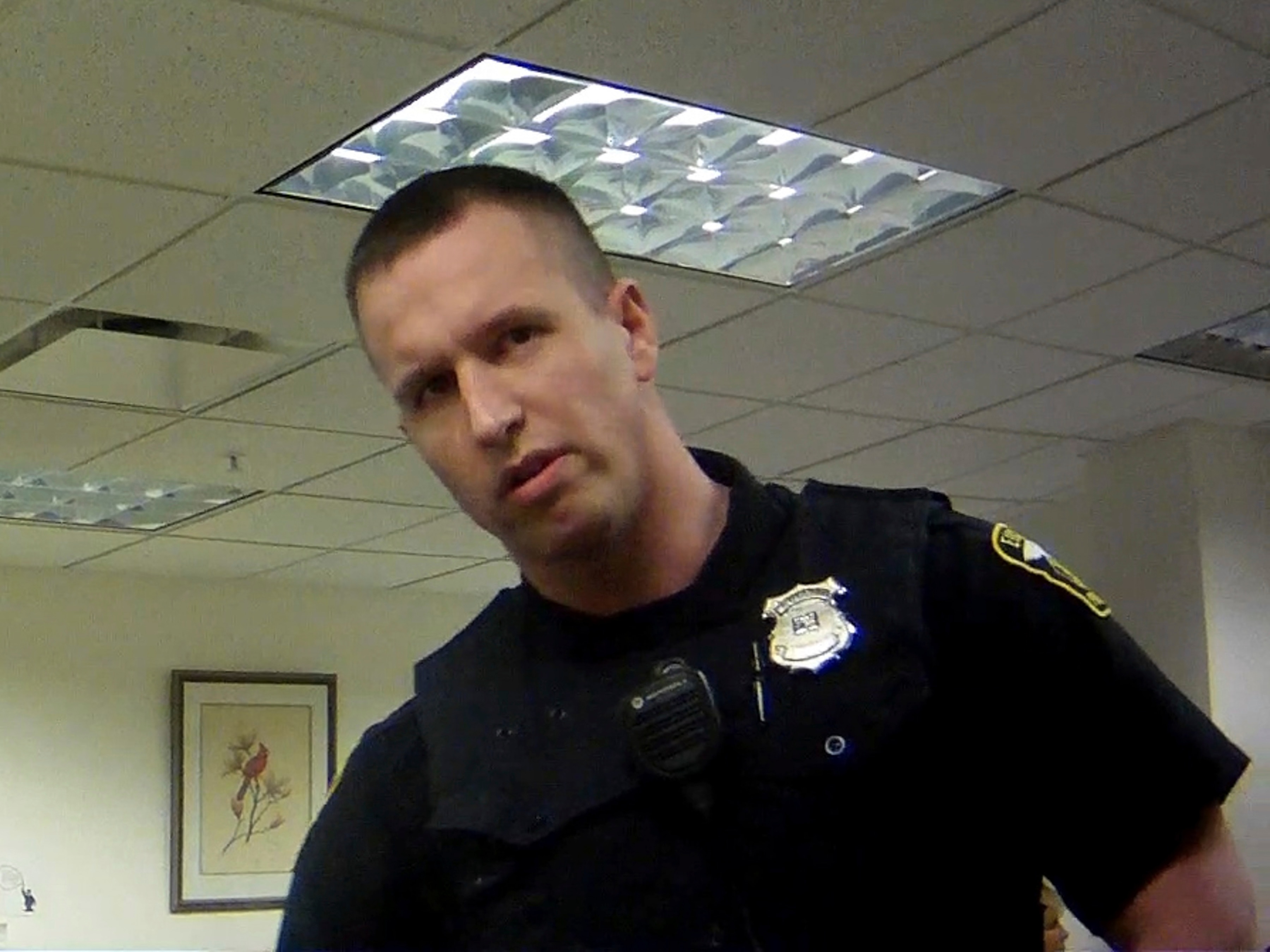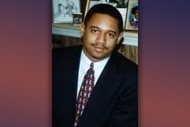‘It’s Not Gonna Happen:’ New 'Serial' Shows How Frustrating It Is To Hold Cops Accountable
Host Sarah Koenig digs into the case of Erimius Spencer, who was beaten by police in 2016.

When Erimius Spencer tried to hold two police officers who beat him back in 2016 accountable for their actions, he likely knew that as a black man in the United States, he was facing an uphill battle. But the newest episode of the podcast “Serial,” which focuses on the Euclid, Ohio, native’s case, illustrates just how frustrating that process can be for people in similar positions who are seeking justice.
The episode, entitled “Misdemeanor, Meet Mr. Lawsuit”, has host Sarah Koenig meeting up with Spencer only 10 days after his traumatic ordeal. She said he was still visibly healing, with one eye still visibly bloodshot.
Spencer lives on the fifth floor of an apartment building and he explained to Koenig how he walked downstairs to bum a cigarette from a friend of his on the 4th floor. While he was knocking on his neighbor’s door, a couple of cops entered the hallway.
“They came and stopped me,” he said. “They basically were telling me to stop. Said they wanted to ask me some questions.”
They asked for his ID and to search him for weapons, which Spencer said he allowed them to do.
While they didn’t discover any weapons, they did, however, find a blunt on his person.
Next thing he knew, he was being arrested by the two officers: Then-officer Michael Amiott (pictured) and Officer Shane Rivera.
(In Ohio, African Americans are more than four times more likely to be arrested for marijuana possession than white people, according to the state’s branch of the American Civil Liberties Union.)
“I ask them what am I under arrest for?” he said. “And they never told me what I was under arrest for.”
At that point he stiffened his arm. Koenig explained that this action meant he was technically resisting arrest.
Spencer asked again why he was being arrested. According to his recollection of events, one of the officers told him to “shut the f--- up” before kneeing him in the crotch. He said he was then thrown to the ground, after which one cop allegedly kicked him in the face as the other held back his right arm. Police also used a Taser on him seven times.
Spencer was eventually loaded into an ambulance and hospitalized; the indecent resulted in a broken orbital bone around his eye.
“He said the whole thing made him feel uncomfortable,” Koenig said.
Throughout the episode, Koenig played conversations she had with different police forces. These exchanges highlighted how they interact with and react to certain community members during stressful situations.
After listening to the episode, Ashley Hill, Deputy State's Attorney for Washington County, said that it shows just how much law enforcement acts as an extension of a community’s values.
“When we invest in recruiting, training, supporting, and engaging our law enforcement professionals in more than just traditional policing, we will begin to see a shift in the culture of law enforcement,” she told Oxygen.com on Friday. “Undeniably, law enforcement is hard, emotionally exhausting work. As communities, we need to find ways to engage with law enforcement when we see trends or patterns emerging that do not reflect our shared values."
Hill added that such conversations are uncomfortable and challenging.
And so before filing a lawsuit against the city, Spencer needed to settle his criminal charges.
His attorney, Paul Cristallo, filed a lawsuit against the city, but told Koenig about the complications of doing so.
He said he could not let the city catch on that his client was considering suing, so he had to take a plea deal, and wait until his bruises healed before showing up in court.
Cristallo wanted his client to look "unremarkable," he said.
“If they know they will dig in on the criminal charges,” Koenig paraphrased.
She asked Cristallo what would happen if his client complained about what happened to police: Would they conduct an internal investigation?
Unlikely, said Cristallo.
“That hasn’t been my experience,” he said. “They don’t own it. They lawyer up. [...] it’s always. ‘This was justified, your client is a liar.’ I just have zero faith based on my experience that that would happen. It’s not gonna happen.”
Cristallo explained that there is a disdain for plaintiffs, in his experience. He added that a client would issue an excessive force claim and everyone would attack the character of the complainer both privately and publicly. Everyone from the mayor to the judge to the police chief to adjusters.
“Their attitude was, ‘What kind of loser, what kind of scumbag would sue the police?’” she said.
Koenig said she too noticed what appeared to be a bit of bias during a hearing for Spencer's case.
"Implicit bias is real in every aspect of our society," Hill told Oxygen.com. "When we as people and professionals become defensive about our actions or inactions, that is the time for us to reflect on what our reactions are rooted in."
During a hearing for Spencer’s lawsuit, Spencer claimed the cops lied under oath.
He said they made up that they asked him whose door he was knocking, claiming he responded he didn’t know.
They testified that he seemed suspicious, like a possible burglar, Koenig said.
Spencer, however, didn’t win the lawsuit.
Hill said civil rights violations are difficult to litigate, adding that plaintiffs are going up against the power and resources of the government.
"If you can overcome those initial hurdles, your suit will proceed- painstakingly slowly," she said, adding that civil litigation on alleged civil rights violations seems to yield a relatively low success rate for those who allege violations.
Months later, one of the two cops was accused of brutal force again, but this time it was caught on tape: Officer Amiott was filmed punching a man during an arrest.
[Photo: Euclid Police Department via Associated Press]


























